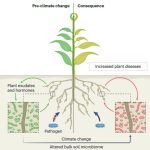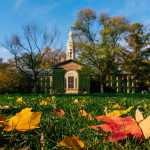Organizing a Conference for Early Career Researchers as an Early Career Research – Norwich-Cambridge Science Symposium (NoCaSS) 2023

Delegates at NoCaSS 2023, Sainsbury Laboratory Cambridge University
Many times, early career researchers go to large national or international conferences and come away with connections with some of the current leading experts in their field. However, it is sometimes difficult to form connections with younger early career researchers who might not be giving a talk or presenting a poster. Yet these are the potential leaders of the future so forming connections at an early stage is vital. This is why early career researcher conferences can be extremely beneficial.
Ten years ago, in 2013, PhD students from the Norwich Research Park and the University of Cambridge realised that there were limited opportunities for early career researchers across Norwich and Cambridge to interact outside these large conferences. So students decided to take action, and the Norwich-Cambridge Student Symposium was born. This was a conference for students, ran by students. Its aim was to build connections and facilitate the exchange of ideas in a friendly and non-intimidating environment.
Since its founding NoCaSS has been held on a regular basis guided by its founding aims. Last held in 2021, in a virtual format due to the Covid-19 pandemic, it was decided that in 2023 NoCaSS needed to be bigger and better than ever before. A committee composed of early career researchers at both Norwich and Cambridge was established and I was lucky enough to be invited aboard. Our committee had ambitious plans – expanding the conference from one day to two days, extending the invite to post-doctoral researchers and introducing workshops and panels for career development. And most importantly raising enough funds to ensure that this event was inclusive and free for all attendees.
Despite attending multiple conferences I’d never had the opportunity to organise one before and had failed to appreciate amount of organisation required. From sourcing funding, to securing a venue and marketing the conference there was considerable effort involved. However, by working together as a team, and with the help of a very comprehensive planning folder, we pulled together to host NoCaSS (newly renamed the Norwich-Cambridge Science Symposium) at the Sainsbury Laboratory Cambridge University (SLCU) on the 24th and 25th of April.
Over 100 early career researcher delegates experienced two days of talks, networking and career workshops. The science was wide ranging with sessions on virulence, metabolites and morphogens, development and evolution, roots, fungi and resistance and genetic engineering. The posters covered even broader topics within plant and microbial sciences. It was satisfying to see high levels of engagement, with participants interacting with posters unrelated to their own research. If you didn’t know this was an early career conference it would’ve been difficult to tell from looking at the posters, or listening to the talks, as all were presented with confidence, clarity, and enthusiasm.
Whilst the science created a buzz and left people feeling inspired, it is the career workshops which will have a longer-term impact on the participants. These workshops were a new component of the conference, and something which we as a committee were keen on introducing to allow people to develop their skills, in addition to their science. Over the two days there were panel sessions on academic vs industry careers, writing and publishing and an interactive session ran by hfp consulting on transferable skills. These workshops were some of the most enjoyable moments of the conference for me as a committee member – seeing delegates asking questions, interacting with the panellists, and scribbling down tips and advice for their future was heart-warming, and made all the organisation worth it. I had the additional honour of sitting on the writing and publishing panel and sharing the experiences and skills I have developed as a 2023 Plantae fellow so far. Being able to talk to other early career researchers about the opportunities in writing available to them at this stage was a privilege, and I was especially pleased at the number of people who approached me afterwards wanting to hear more.
All in all, NoCaSS 2023 has taught me so much – from hearing the science presented at the conference to developing skills at workshops and as part of the organising committee. However, the most important thing is that it has left me feeling empowered, and that the future of plant science is in good hands.
Committee (alphabetical order: Emily Oren (Cambridge), Farahnoz Khojayori (Cambridge), Gabriel Ferreras Garrucho (Cambridge), Hannah Rae Thomas (Norwich), Humberto Herrera-Ubaldo (Cambridge), Lucía Arce Cubas (Cambridge), Marina Millán Blánquez (Norwich), Rose McNelly (Norwich), Ruoxi Lin (Norwich), Thomas Navarro (Norwich).
Funders (alphabetical order: Cambridge Philosophical Society, Department of Plant Sciences, University of Cambridge, eLife, Engineering Biology Interdisciplinary Research Centre (EngBio), Gatsby, Genetics Society, hfp consulting, John Innes Centre, John Innes Foundation, KWS, Molecular Plant, New England Biolabs, New Phytologist, Novogene, Plant Communications.
______________________________________________
About the Author:
Rose McNelly is a PhD student at the John Innes Centre, and a 2023 Plantae Fellow. She trying to uncover novel genes involved in endosperm starch formation in wheat. You can find her on Twitter at @Rose_McN.



